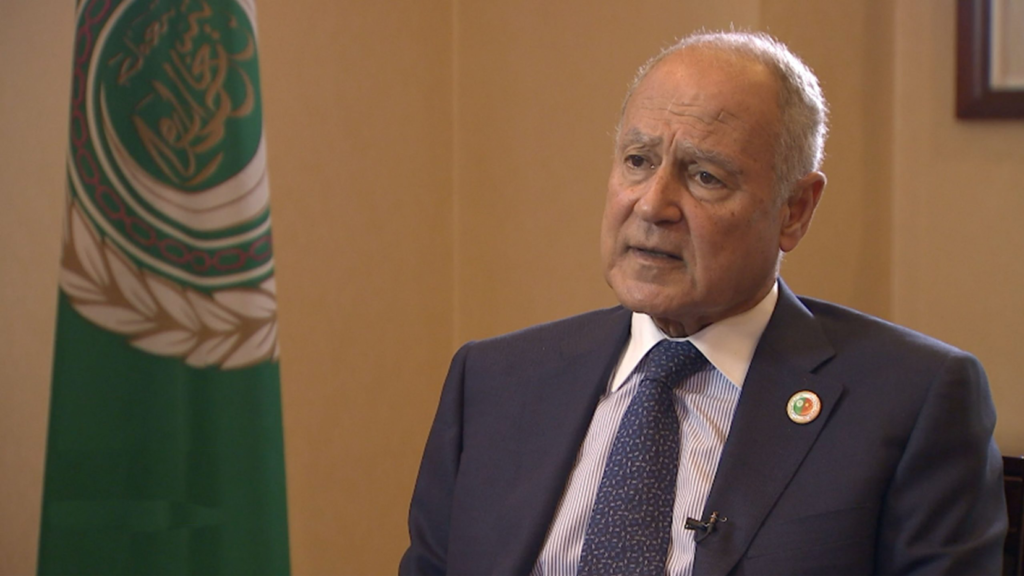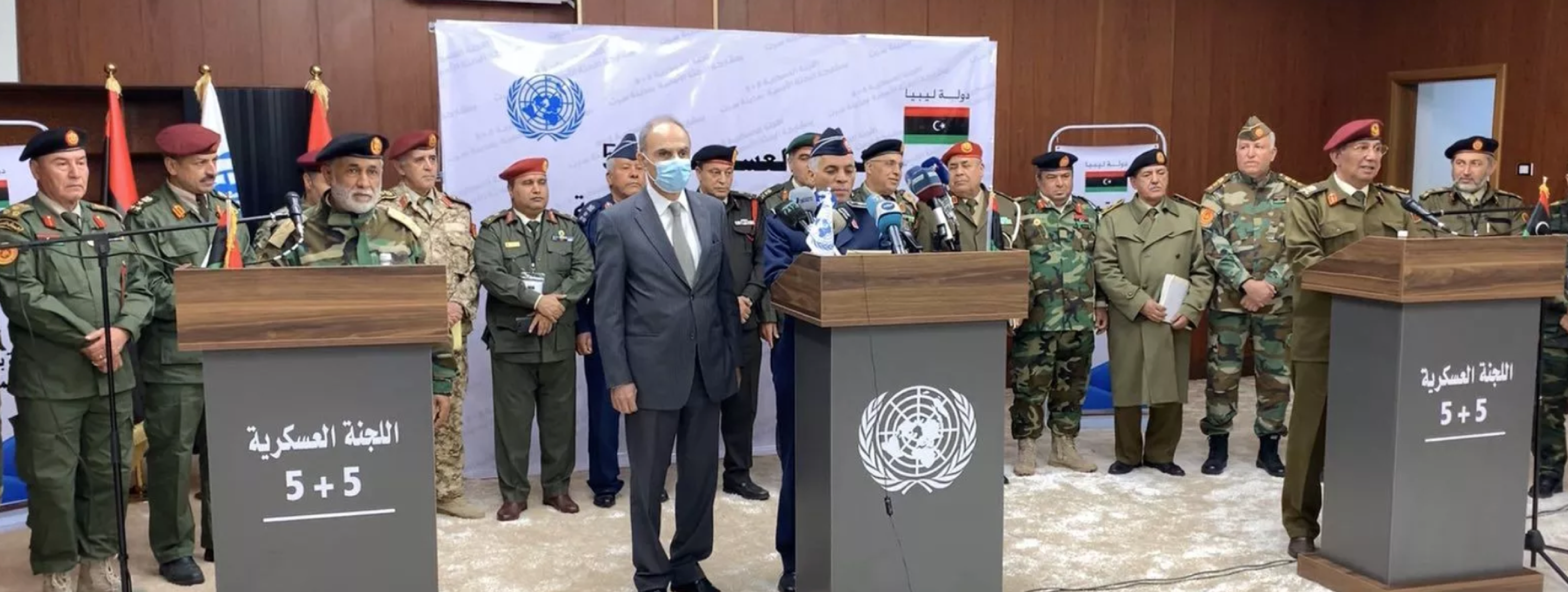Dec. 2, 5+5 Joint Military Commission (JMC) heads to Turkey for foreign forces evacuation talks.
Dec. 4, 72 Libyan MPs call for urgent session to investigate alleged electoral fraud, foreign interference.
Dec. 5, Sebha Court of Appeals rules in favour of Saif al-Islam Gaddafi, orders Election Commission to restore him to presidential candidates list.
TRIPOLI
- Around 3,000 migrants and refugees spent the last couple of months camped out on the streets of Libya’s capital, Tripoli. They staged an open-ended protest outside the offices of the United Nations High Commissioner for Refugees (UNHCR) to denounce the inhumane conditions they face in Libya, and claim protection and safety. The sit-in kicked off at the beginning of October after the Libyan authorities conducted a brutal crackdown on migrants, asylum seekers, and refugees in the western neighbourhood of Gargaresh, near Tripoli.
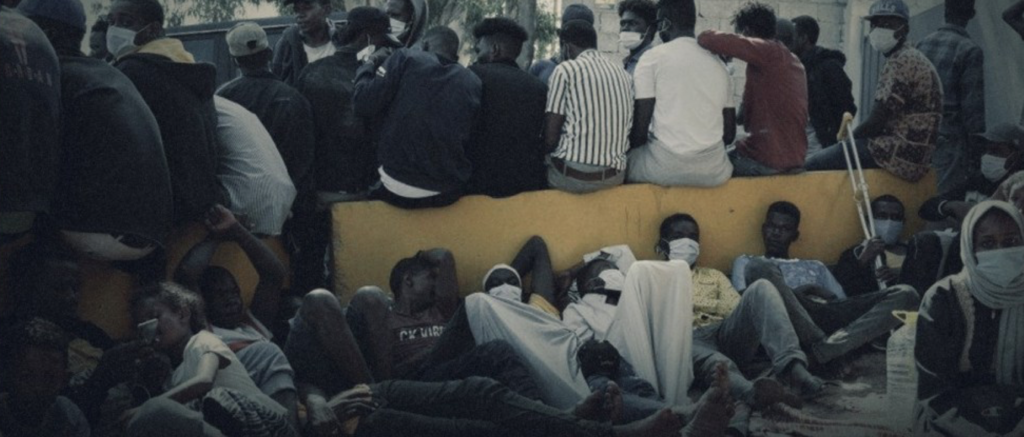
SEBHA
- Dec. 5, the Sebha Court of Appeals has issued a final ruling in favour of Saif Al-Islam Gaddafi, regarding the appeal submitted against him by Libya’s High National Election Commission (HNEC). The court ordered HNEC to restore him to the final list of candidates for the upcoming Presidential elections, which are scheduled to be held on Dec. 24. Immediately after the court issued its decision, the commission announced that it would appeal against the appeal. This is due to past convictions against Gaddafi for using violence against protesters in 2011. Saif Al-Islam’s appeal against his disqualification for the elections was delayed for days as armed groups blocked off access to the court.
- Nov. 29, Saif Al-Islam Gaddafi, son of the late Libyan leader Muammar Gaddafi said that Gunmen had surrounded the Sebha Courthouse building for the second day in a row, preventing judges and employees from entering. Saif Al-Islam said in a tweet that this caused the postponement of the appeal submitted by his lawyer, Khaled Al-Zaydi. This is against the decision of the High National Elections Commission (HNEC) regarding his exclusion from running in the Presidential elections scheduled for 24 December.
BENGHAZI
- On November 28, the First Instance Appeals Committee of the Benghazi Court of Appeals rejected the appeal submitted by Presidential candidate, Abdel-Majid Saif Al-Nasr against Khalifa Haftar. Disputes over the election rules, including the validity of a law issued by the Libyan Parliament in September, and over the eligibility of some candidates, threaten to derail the vote. Last week, the outgoing Head of the United Nations Support Mission in Libya (UNSMIL), Jan Kubis warned that not holding the elections as planned;
NATIONAL POLITICS AND SOCIAL ISSUES
- Dec. 4, 72 Libyan Members of Parliament (MPs) called for holding an urgent session “to save the ongoing electoral process from suspicions of fraud, foreign interference, bypassing the law, and attempts to influence judicial decisions,” as they put it. In a joint statement the MPs said that they are “following the negative developments of the electoral process, the failure to implement the law and circumventing it by the judicial institution and the High National Election Commission (HNEC), and silence on suspicions of fraud and influence on the judiciary”;
- Libya’s High National Elections Commission (HNEC) issued a decision approving the electoral campaign list for the Presidential, and Libyan Parliament elections. HNEC pointed out that the regulation includes 31 articles explaining the “procedures, rules, and controls regulating the electoral campaigns of candidates” for the upcoming elections, in accordance with the electoral laws. Notably, HNEC issued its cumulative daily report on the process of registering candidates for the Parliamentary elections. HNEC revealed that 2,757 candidates have registered, according to the latest statistics update of Dec. 5.
INTERNATIONAL RELATIONS
- A meeting was held at the headquarters of the International Criminal Police Organization, commonly known as Interpol, in Lyon, France, on the 2nd and 3rd of December. The meeting included the Head of the Arab and International Criminal Police Office at the Libyan Interior Ministry, Brigadier-General Adel Al-Sharawi, and Colonel Wiam Abdel-Daem. The meeting included the Head of the Information Division of the Libyan Ministry of Interior, Lieutenant-Colonel Gowhar Al-Fitouri, the Interpol Sub-Directorate for the Middle East and North Africa, as well as some international partners;
- The Speaker of the Arab Parliament confirmed that the Arab Parliament supports the holding of the Libyan elections on time. This will contribute to stability in Libya. In statements to the Al-Ghad channel Dec. 4, Al-Asoumi said that he would respond to the Libyan government’s call to send a delegation to monitor the Libyan elections;
- Dec. 4, the High Representative of the European Union (EU) for Foreign Affairs and Security Policy, Josep Borrell, called on Turkey to leave Libya as a way to resolve the crisis in the country. He did this in conjunction with the Libyan and international parties’ attempts to work on the exit mechanism for thousands of mercenaries and foreign fighters;
- Dec. 4, a member of the 5+5 Joint Military Commission (JMC), Lieutenant-General Faraj Al-Sawa confirmed that Turkey has accepted a request to withdraw its-affiliated foreign forces and mercenaries from Libya. This is on the condition that all foreign forces will withdraw simultaneously;
- Dec. 4, the European Union’s (EU) official Spokesman for the Middle East and North Africa, Luis Miguel Bueno reiterated the bloc’s supportive position for holding the elections in Libya as scheduled. In press statements, Bueno stressed that all necessary steps must be taken to ensure that the elections are held “as a free, fair, inclusive and credible process without intimidation or threats.” Bueno also affirmed the EU’s continued “support” for Libya’s High National Elections Commission (HNEC) in this regard;
- Dec. 3, the UK Ambassador to Libya, Caroline Hurndall reiterated her call for the withdrawal of all mercenaries and foreign forces from Libya. She confirmed her support for holding the elections on the scheduled date of 24 December. Ambassador Hurndall expects the elections in Libya to be “positive.” She reiterated her support for the High National Elections Commission (HNEC) in this regard, saying that the significant number of people who received their voting cards is also a positive sign. This shows the extent of the Libyans’ desire to elect a President who represents them;
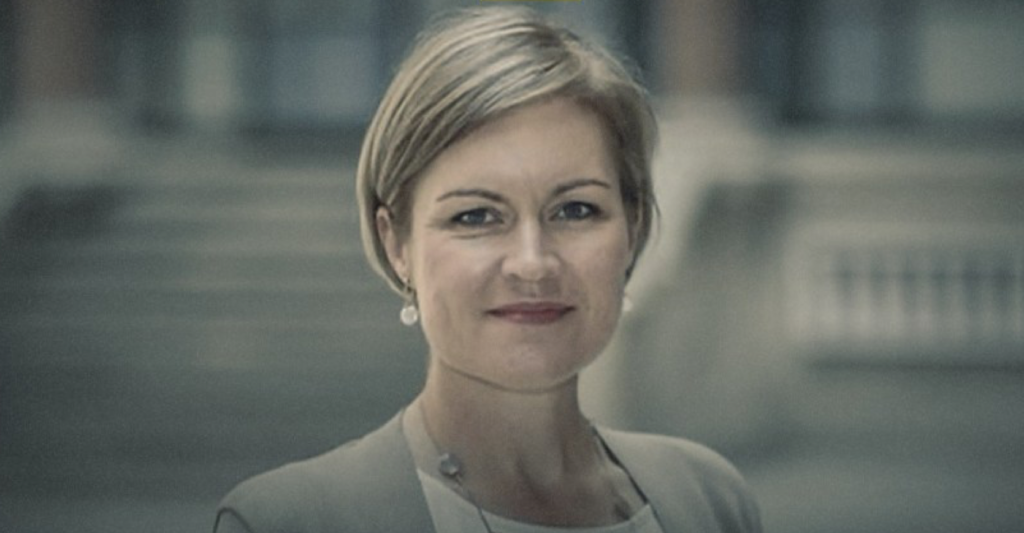
- The Spokesman for the Secretary-General of the United Nations (UN), Stéphane Dujarric, said that there are many aspects that give cause for concern about the Libyan elections. In press statements, the Spokesman for the Secretary-General of the UN added, “we hope to create conditions for holding elections in Libya on time, and we also hope that all foreign fighters will leave Libyan territory”;
- Dec. 2, Major General Khaled al-Mahjoub, Director of the Moral Guidance Department of Libya’s National Army (LNA), said that the 5+5 Joint Military Commission (JMC) headed to Turkey earlier today for talks over the withdrawal of mercenaries and foreign forces from Libya. In press statements, Al-Mahjoub added that the Commission is set to leave for Moscow after ending its talks in Turkey with a view to ensuring the full withdrawal of mercenaries and foreign forces out of the North African Country;
- Russia has blocked the appointment of Britain’s Nicholas Kay as the United Nations (UN) Special Envoy to Libya, two diplomatic sources told Foreign Policy news. Russia’s move has contributed to diplomatic turmoil ahead of the North African country’s upcoming presidential and parliamentary elections. The move comes less than a week after the UN’s outgoing Envoy, Slovak diplomat, Ján Kubiš, abruptly resigned from his job following a dispute with UN Secretary-General, António Guterres, over the UN’s handling of pre-election preparations;
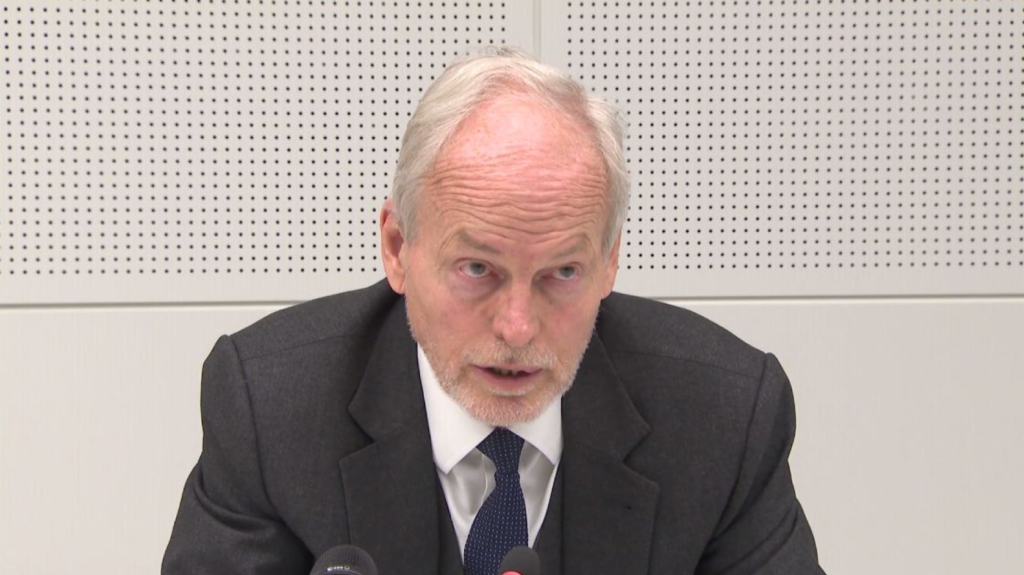
- Dec. 1, the Head of United Nations Support Mission in Libya (UNSMIL), Jan Kubis confirmed that the UN urged the Libyan people to participate in the upcoming elections, scheduled for 24 December. During his meeting with Omar Abu Sherida, a representative of Saif Al-Islam Gaddafi, Kubis said that UNSMIL rejected political exclusion and isolation. He stressed that harsh sanctions will be imposed against those who attempt to spoil the Libyan Presidential and Parliamentary elections;
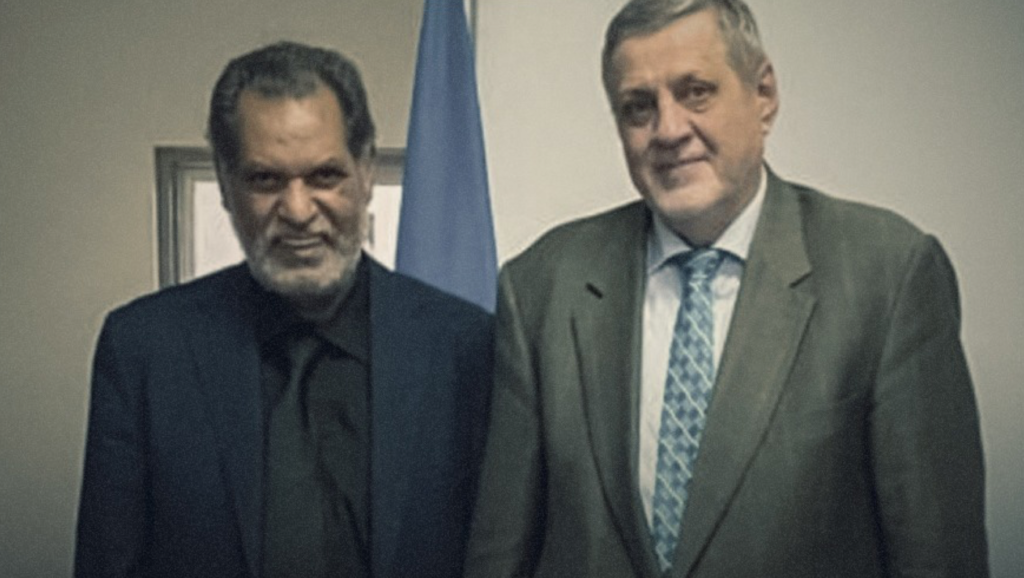
- Nov. 30, European Commission (EU) Spokesman, Peter Stano said that the European Union is not funding any militias in Libya. He stressed that the union isn’t channelling funds to any of the armed groups in the country. “The nature of our cooperation with the Libyan Coast Guard is to save lives, to provide equipment and training in order to be able to save people in their territorial borders,” Stano said when asked about reports claiming otherwise;
- Nov. 30, Libya and Niger signed a memorandum of understanding (MoU) to protect migrant workers through effective visa issuance before their employment, the International Organization for Migration (IOM) said. The IOM noted in a report on the nature of migration dynamics between Libya, Chad, and Niger, that crossing the Sahara Desert is one of the world’s most perilous migration journeys. “The migration routes are remote and vehicle breakdown and the threats from bandits are frequent. Migrants often travel spontaneously, following in the footsteps of centuries of migration before them, often with no documents or legal status,” the report explained;
- The Italy Foreign Ministry announced that Foreign Minister, Luigi Di Maio discussed the latest developments in Libya with his Turkish counterpart, Mevlut Cavusoglu. In a tweet, the Italy Foreign Ministry said that Di Maio exchanged views on the future of NATO, and the developments in the situation in Libya, on the sidelines of the NATO Ministerial Meeting.
- On November 30, the Director of the Moral Guidance Department at the General Command of Libya’s National Army (LNA), Major General Khaled Al-Mahjoub announced that the 5 + 5 Joint Military Commission (JMC) held a meeting with a team of international observers in Benghazi. Al-Mahjoub explained that the meeting discussed a number of aspects related to the work of the observers, and the implementation of the obligations of the Geneva Convention. It was agreed to dismantle and disarm all armed groups in Libya, and unify the country’s military institution. The Libyan parties have also agreed on an Action Plan, to withdraw foreign forces and mercenaries from Libya;
- Nov. 29, a delegation of the Libyan Parliament, headed by the Chairman of the Parliament’s Foreign Affairs Committee, Youssef Al-Agouri visited France. They held a meeting with several members of the French National Assembly. They discussed the latest developments in Libya, and the two parties emphasized the depth of relations between the two countries. Both sides confirmed their keenness to ensure the success of the political process in Libya;
- Nov. 29, Deputy Head of the Libyan Presidential Council, Mousa Al-Koni met with the Head of the United Nations Support Mission in Libya (UNSMIL), Jan Kubis. They discussed the latest developments in Libya, primarily the upcoming elections, and the envoy’s briefing before the UN Security Council. Al-Koni praised UNSMIL’s efforts in supporting the political process in Libya, and the efforts of the Presidential Council in implementing the roadmap of the Libyan Political Dialogue Forum (LPDF). Al-Koni told Kubis that his continuation as the UNSMIL Head, will greatly support efforts to resolve Libya’s crisis;
- Nov. 29, the Secretary-General of the Arab League, Ahmed Aboul Gheit stated that the Libyan crisis is of great importance to all the countries of the Mediterranean region, stressing the need to hold the upcoming elections as scheduled. Addressing the sixth regional forum of the Union for the Mediterranean (UfM), the Secretary General of the Arab League said that “we all look forward to completing the path of a peaceful solution in Libya and restoring its sovereignty and security. I continue to emphasize the importance of holding the Presidential and Parliamentary elections on time, and the need for all foreign forces and mercenaries to leave, so that the Libyan state regains its full territorial sovereignty.”
